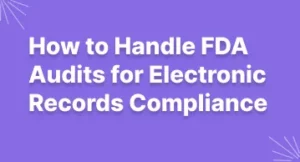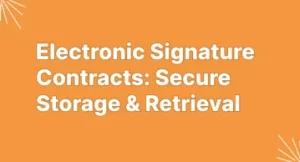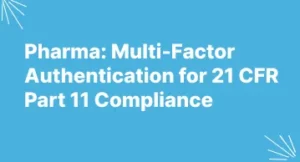Master the Basics: Unlocking the Power of eMandates
What is an eMandate?
An eMandate is an electronic authorization for direct debit payments. The system is designed to streamline the payment process, reducing administrative costs and simplifying the transaction process. This type of innovative payment technology is often used by banks, businesses, and other financial services providers. The eMandate norms and procedures are standardized, so each user receives the same security and data protection.
eMandates are increasingly popular due to their convenience and efficiency. As payments become more digital, this method of authorization helps to reduce paperwork, minimize manual processes, and ensure transactions can be securely processed with minimal disruption. With eMandates, businesses can benefit from increased speed and lower costs, making them worthwhile investments in a modern world.
Why are eMandates Important?
eMandates are important for businesses as they provide a secure way to handle payments. By using eMandates, companies can reduce the risk of fraudulent activity or incorrect payments. They also simplify the payment process for customers, which can be especially useful for those who may not understand the complexities of some payment methods. eMandates also make it easier to track and manage payments, giving companies a better understanding of their finances.
In addition, eMandates can help businesses save money. Because the process is automated, there are fewer administrative costs and fewer manual processing fees. This can result in significant savings over time, which can then be invested back into the company.
Overview of Benefits:
eMandates provide a convenient and secure way to make payments. It is a modern payment solution that can be used for recurring as well as one-time payments. This makes it an ideal choice for companies, governments, or individuals that require a payment plan.
The advantages of using eMandates include:
- It is faster than traditional payment methods like physical checks or bank transfers.
- It is more secure since all communications between the parties involved are encrypted and protected.
- It is cost effective since companies do not have to invest in additional infrastructure or personnel.
- It is paperless and therefore more environmentally friendly.
- It ensures timely payments with the ability to set up automatic payments.
- It can be easily monitored and managed with access to detailed transaction records.
eMandates provide a reliable and effective payment processing solution that can be used for a variety of different purposes. It is becoming increasingly popular as a result of these benefits and is likely to become more widespread in the near future.
How It Works
Setting up an eMandate process can seem daunting, but it’s actually quite simple. The first step is to obtain your company’s SEPA Creditor Identifier (SCI). This is a number assigned to your business by the European Payments Council in order to check the identity of the party initiating payments. You can apply for an SCI on the website of your respective national authority.
Once you have your SCI, the next step is to create and register an electronic mandate with your bank. Each mandate must include the details of the creditor (i.e., you), the debtor (the customer making the payment) and the account the funds are being transferred from. After the terms are agreed upon, the customer will receive an email or text message to notify them that an eMandate has been initiated, and they’ll be asked to review and approve it.
Once the customer approves the eMandate, both parties will receive confirmation that it has been established. At this point, the customer’s bank will send the funds to the creditor through an online banking system such as the Single Euro Payments Area (SEPA). Once the funds have been received, the eMandate process is complete.
Although the process of setting up an eMandate may differ from one bank to another, the steps outlined above should give you an idea of how the process works.
Security Measures
eMandates provide a secure way to make payments, but there are multiple levels of protection in place to ensure that your transactions are secure. The most common security measures used for eMandates include authentication, encryption, and two-factor authorization.
Authentication is used to verify the identity of both parties involved in the transaction. This is done by having users set up a unique username and password. Encryption is a process used to scramble data before it is sent over the internet. This ensures that only authorized parties can access and interpret the data. Two-factor authorization adds an extra layer of security by requiring two forms of identification to access the account.
In addition, banks use fraud detection systems to monitor eMandate transactions. These systems detect suspicious activity and alerts the bank so that protective measures can be taken. This helps protect you from unauthorized transactions and potential fraud.
Regulatory Requirements
When dealing with eMandates, there are a number of different regulatory requirements that must be met. These regulations depend on the type of transaction and the type of business involved. It’s important to ensure that all of these regulations are followed to avoid any penalties or sanctions.
In some cases, businesses are required to obtain the customer’s consent before entering into the eMandate. This ensures that the customer is aware of the details of the transaction and has agreed to it. Furthermore, businesses must ensure that they follow the applicable laws and regulations in their jurisdiction, in order to protect both the business and the customer.
The security measures for eMandates must also meet certain requirements in order to keep them secure and protected from fraud. For example, businesses must ensure that all of their transactions are encrypted and securely stored. Additionally, businesses must put in place measures such as strong authentication and monitored access control to prevent any unauthorized access to the system.
Finally, businesses must also put in place an effective dispute resolution system for customers, in case any issues arise with their eMandate transactions. Having an efficient dispute resolution system ensures that customers can get their issues resolved quickly and easily.
Overall, it’s important to understand the different regulatory requirements that must be met when dealing with eMandates. Failing to comply with these regulations can result in serious penalties, so it’s essential to ensure that all of these legal requirements are followed.
Common Questions
When dealing with eMandates, it’s important to understand the process and have your questions answered. Here are some of the common questions that come up regarding eMandates:
- What is an eMandate?
- How does an eMandate work?
- Are eMandates secure?
- Are there any regulations I need to follow with eMandates?
- How long does it take to set up an eMandate?
These are important questions and understanding them can help you make the best decisions with eMandates. An eMandate is an electronic mandate with a secure digital signature that allows for payment processes to be automated. It takes a few simple steps for one to be set up, and it offers secure transactions with proper regulatory requirements.
An eMandate is an electronic mandate or an automated authorization agreement between the payer and the payee. In other words, it is a digital signature that authorizes a recurring payment from the payer to the payee. It establishes a payment schedule and method that can be used for recurring payments. This payment method is simple, safe, and cost-effective, making it the preferred choice of many businesses for processing payments.
Through the use of eMandates, businesses have access to secure and efficient payment processes. The automated authorization agreements that are created through eMandates help to streamline the payment process, reducing paperwork and manual entries. Additionally, the use of eMandates allows businesses to track payment history and review payments quickly and easily.
When setting up an eMandate system, businesses will need to go through a few steps. First, they will need to select an eMandate provider that they want to work with. Next, businesses will need to identify the types of payments they want to be processed via eMandates and set up the parameters for their payments. Finally, they will need to review the legal agreement associated with eMandates, so they can ensure that all regulations are followed.
To keep the payment process secure, eMandate providers have several security protocols in place. These security protocols help to protect the data of customers, ensuring that only authorized people can access the sensitive information. Additionally, these protocols prevent tampering with the payment process, helping to safeguard both the payer and the payee from any fraudulent activity.
When dealing with eMandates, businesses must comply with any relevant regulations that apply to the payment processing process. Different countries may have different regulatory requirements for eMandates, so businesses will need to make sure they are familiar with the regulations that apply to them. It is important to note that compliance with regulatory requirements is necessary for businesses to ensure a smooth and successful payment system.
Lastly, there are some commonly asked questions about eMandates that should be addressed. These include whether it is safe to use eMandates, how long the payment process takes, and if there are any extra fees associated with the process. Understanding how these topics are related to eMandates can help businesses make informed decisions about their payment systems.
In conclusion, eMandates are a secure and efficient way for businesses to process payments. Through the use of automated authorization agreements, businesses can streamline the payment process and reduce paperwork. Furthermore, businesses can rest assured that the payment process is secure, as there are multiple security protocols in place. Finally, businesses must make sure to follow any relevant regulations when setting up and using eMandates.
What are eMandates and why are they important?
1. What is an eMandate
An eMandate is an electronic authorization, which can be used to facilitate transactions securely and quickly. It is a digital alternative to paper-based processes, such as signing contracts or making payments. The use of eMandates is becoming increasingly important as it reduces the amount of time and resources needed for the completion of transactions, while also increasing the security of the process.
2. What are the benefits of eMandates?
There are a number of advantages to using eMandates, which include cost savings through reduced manual processing, the ability to store documents electronically, and improved accuracy and speed of processing. Additionally, eMandates offer improved customer satisfaction, as the process is both efficient and secure.
3. How does an eMandate work?
An eMandate is a digital authorization that is initiated by a customer and sent to a business. It contains all the necessary information required for the transaction to take place. The business will then confirm the details in the eMandate and complete the transaction. Customers are able to track the status of their eMandate online.
4. What measures are in place to ensure the security of transactions carried out via eMandates?
All transactions carried out via eMandates are secured by a range of measures, including encryption, three-factor authentication and signature verification processes. Additionally, customers have the ability to review and revise any terms or conditions associated with the transaction before authorizing the eMandate.
5. Are there any regulatory requirements for businesses issuing eMandates?
Yes, businesses must comply with all applicable regulations when issuing eMandates. These regulations vary depending on the jurisdiction, but will generally include those related to consumer protection, privacy and data security. It is therefore important that businesses keep up to date with any relevant legislation.
6. What are some of the most common questions about eMandates?
Most commonly, customers have questions about how long it takes for an eMandate to be processed, how to check the status of an eMandate, and what security measures are in place to protect personal data. Additionally, customers often want to know if they have the right to withdraw from an eMandate at any stage in the process.
7. What should businesses consider when setting up an eMandate process?
When setting up an eMandate process, businesses should take into account any relevant legal requirements that must be met. Additionally, it is important to ensure that customers understand the process and that they have the necessary tools to complete transactions efficiently. Lastly, businesses should ensure that adequate security measures are in place to protect personal data.





